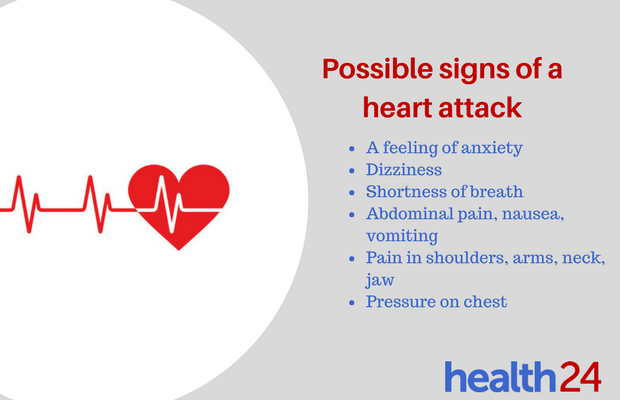How savvy are you likely to be in an emergency involving yourself? Would you be able to recognise a heart attack and save your own life?
Many of us are reliant on paramedics or emergency medical services, but a 44-year-old nurse was left to his own devices at a health clinic in a small, remote settlement in Australia.
Without any hesitation, he managed to diagnose and treat his own heart attack.
Performed EKG on himself
The man, whose name was withheld for privacy reasons, experienced severe chest pain and dizziness while he was the sole medical professional on duty at a nursing post in Coral Bay, more than 600 miles (1 000km) from Perth, the capital of Western Australia, said the account published in the New England Journal of Medicine.
With the next medical facility 90 miles (150km) away and no one else around to help, he hooked himself up to an electrocardiogram (EKG), which showed a complete heart block that may have been due to an evolving heart attack.

The man then performed another EKG on himself, which confirmed the diagnosis of a heart attack.
He emailed the results to a doctor via the Emergency Telehealth Service (ETS) and found an emergency physician to talk with him via real-time video.
Then, he inserted intravenous (IV) lines in both of his own arms and self-administered drugs including aspirin, blood thinners, painkillers and a clot-dissolving drug called tenecteplase.
"He attached his own defibrillator pads and prepared adrenaline, atropine, and amiodarone," which are drugs to treat heart rhythm problems, said the report.
As it turned out, the clot-busting drugs worked, and the heart attack subsided.
He was flown the next day to a cardiology unit in Perth, a stent was inserted in the coronary artery that had become blocked, and he went home two days later.
DIY-approach not recommended
Experts said his extreme, do-it-yourself, MacGyver-like approach would not be recommended for most people.
But the use of the clot-busting drug is standard procedure for people who are far from a hospital, and his own medical knowledge likely contributed to saving his own life.
"It was quite genius to be able to do all these things," said Brandon Godbout, vice chair of the emergency department at Lenox Hill Hospital in New York.
"When nobody else is around, what do you do? This person seemed to have quite good experience in emergency care, based on their confidence in managing this severe situation," said Godbout, who was not involved with the case but said reading about it made him smile.
The case also shows the importance of telemedicine, particularly as hospitals retreat from rural areas, leaving more people far from emergency medical care.
"I think telemedicine is crucial to dealing with these sorts of emergencies," Godbout added.
Recognise the symptoms
While mere mortals won't have the access to medical devices to perform this life-saving action, you can still save yourself by being able to recognise the symptoms of a heart attack on time. Look out for:
- An overwhelming sense of anxiety
- Shortness of breath
- Feeling dizzy
- Abdominal pain, nausea, vomiting
- Pain that radiates to shoulder, arms, neck or jaw.
- A feeling of heavy pressure on the chest
According to a previous Health24 article, you should do the following if you think you are having a heart attack:
- Chew an aspirin. Disprin and a number of other analgesics (that's painkillers to you and me) contain aspirin, which thins the blood. If there's a clot in your heart's blood vessels, it may help buy you some time. Check the packaging though, as painkillers containing paracetamol won't have the same effect.
- Call an ambulance if you are alone. It's safer than trying do drive yourself to the hospital.
- Call your family doctor. If you have a cardiologist, speak to him or her as well. Even if you're not having a full-on heart attack that warrants an ambulance, you may have angina.
Image credit: iStock




 Publications
Publications
 Partners
Partners











